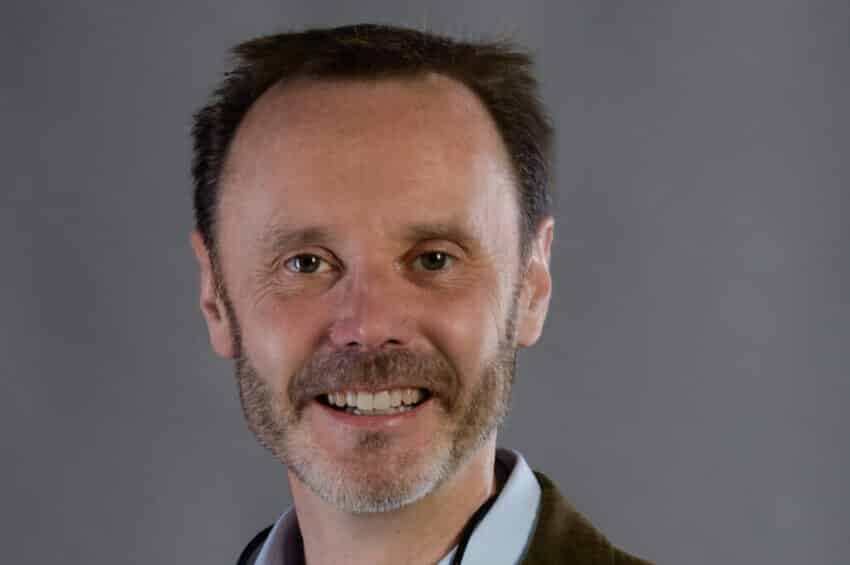Kevin Brent, Founder & MD of BizSmart, tells us about his company which supports business owners to scale up and build value
What do you currently do at BizSmart?
I am the Founder and MD of BizSmart, an established business support provider with a clear mission to transform the lives of business owners through a proven and structured peer to peer and 1 to 1 support program, which helps owner managers scale-up and maximise the value of their business.
What was the inspiration behind your business?
Building a successful sustainable business is hard and the journey is fraught with potential pitfalls. I founded the concept for BizSmart® after experiencing many of the challenges myself and realising that many other businesses within the Worcestershire region as well as the UK in general were caught in what we now refer to as the ‘owner’s trap’– where they had created a successful business, but one that was essentially over reliant on the business owner. This led to them struggling to reach their full potential and to achieve the level of success that they had set out to achieve. The vast majority of businesses (96%) in the UK do not scale beyond the £1 million turnover and 10 employee level and I wanted to help as many ambitious owners as possible to break through this barrier.
Since our establishment, we have grown our client-base dramatically and have now franchised the business so that thousands more businesses can benefit from and grow as a result of the BizSmart® scale-up model.
Who do you admire?
There are four books that have not only helped me in honing the BizSmart model, but I believe provide at least 80% of the fundamental information that you need in order to start, build and scale a business, which include:
- Built to Sell – John Warrillow
- The E-Myth – Michael E Gerber
- Scaling up – Verne Harnish
- The 7 Habits of Highly Effective People – Stephen Covey
On a personal level, Victor Holt, my Grandfather, is the person I look to emulate. Sadly, he’s not around now but lived to nearly his 100th birthday. He took up golf in his 70’s and moaned about the ‘oldies’ holding him up on the course (they were in their 60’s). He fought with the Desert Rats in World War 2, he was a county level tennis player, rose to the top of the Newspaper Federation and he was an incredibly principled man – somewhat direct and reserved. He’d be the person I would most want to live up to.
Looking back, is there anything you would have done differently?
Over the last 8 years we have really honed the BizSmart model and now have clear sales, marketing and operational processes in place that has enabled us to Franchise. Looking back, I only would have done everything far sooner and would have scaled a lot quicker, however you need to go through learning curve to really grow and develop in business. Therefore, it could easily be argued that we still would’ve needed the last 8 years to get to where we are today.
What defines your way of doing business?
Focused on truly disrupting and dominating the business support industry, we work to two clear mantras at BizSmart, which are: “If you want to go fast, go alone, if you want to go far, go together” and “First seek to understand and then be understood”.
That thirst for understanding is deep in our DNA and it drives us to listen before speaking; challenge and guide rather than offer a prescriptive solution. We offer practical and relevant advice that will have a meaningful impact.
Whilst we know that having a framework and structure is critical to success, we also understand the need to be flexible within that framework. Furthermore, we are always looking to connect people and create opportunities that will ignite growth in a business and help business owners create the life they want.
What advice would you give to someone starting out?
I think it’s important for anyone starting out in business to be really clear on their proposition, understanding what product or service they plan to offer and why? Other key considerations include their market niche, what problem they are solving and who their target audience is?
I also think it’s vital for aspiring business owners to think about why they want to start a business and what type of business they are planning to build. For example, both the strategy and mindset required to start and build a lifestyle business differ significantly to the mindset and strategy required to build an SME or large organisation. A lot of individuals set out to build a larger business but get stuck in the ‘owner’s trap’ where they do everything themselves and, therefore, don’t have the time to work in the business instead of in it. Putting in measures to avoid this pitfall from the start, will increase the likelihood of an individual succeeding in scaling a large business for the long-term.


